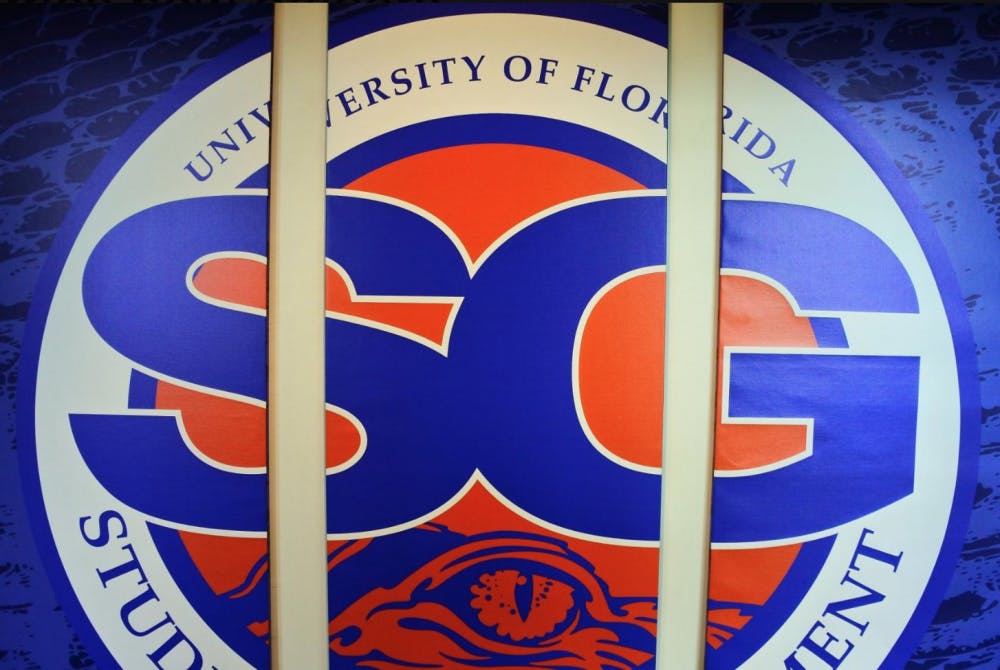During Tuesday night’s Student Senate meeting, senators will hear nine legislation items that could significantly alter Student Government rules and procedures if approved.
The Judiciary Committee met on Monday morning to review 26 proposed pieces of legislation, including several controversial acts, such as the Commitment to Our Constituents Act, the Learning Laboratory Act and a resolution that would make extensive changes to SG Senate rules and procedures.
The Commitment to Our Constituents Act, co-authored by Judiciary Chairman Will Sandifer (Impact, Business Administration) and Rules and Ethics Chairwoman Abby Morris (Impact, Business Administration), is an amendment to the SG governing documents.
The act would create a new rule that would bar senators from running for re-election if they previously lost their seat by expulsion or resignation by non-attendance.
It was approved by the committee.
Senator Zachary Amrose (Inspire, Liberal Arts and Sciences) said he thinks this bill was designed to target former Senator Ben Lima, who was forced to resign seat during Summer A due to non-attendance and attempted to appeal the decision, which failed.
“It seems that it would ensure that Senator Lima and a couple of other people caught in the crosshairs would be unable to run for Senate for the rest of their time at UF,” Amrose said.
Other acts the committee approved included a resolution to authorize SG Spring 2020 election dates for Feb. 18 and 19, the Bridges Minority Outreach Program Establishment Act, the Class Councils Establishment Act and a resolution supporting the National Puerto Rican Student Coalition.
The committee also approved:
- The Executive Cabinet Amendment Act, which adds several new positions to the executive cabinet, including a Graduate Student Affairs Director.
- The Internal Affairs Establishment Act, which establishes an Internal Affairs chairperson who will act as a liaison with university faculty and ensure SG initiatives and projects are completed effectively.
- The SG Referendum Constitutionality Act, which amends the process for submitting referendum questions to SG ballots.
- The Exclusionary Offices Amendment Act, which adds the positions of Class Councils Chairperson, Internal Affairs Chairperson and Bridges Minority Outreach Chairperson to the list of exclusionary offices in the executive branch.
The floor was never opened to public debate. The meeting concluded before any of the legislation proposed by Inspire senators, including 12 bills Amrose submitted, was heard by the committee.
Amrose said legislation that was tabled included bills that would ensure survivors of sexual assault have access to rape kits, adding more counselors and more space to the UF Counseling and Wellness Center and ensuring all students have fair access to transportation.
Since Summer B is almost over, Amrose said he was worried these pieces of legislation won’t be reviewed until sometime during the Fall semester.
The legislation items the committee approved will each receive a first reading during Tuesday night’s Senate meeting.
If the Senate approves legislation on the first reading, it will receive a second reading at the next Senate meeting.
If the legislation passes the second reading, it will then be able to be signed into law by Student Body President Michael Murphy.
The Learning Laboratory Act, authored by Senator Parker Hoppens (Impact, Graduate) and sponsored by Murphy, was written to strike the sections of the SG governing documents that require SG to comply with the Government in the Sunshine law (section 286.011 of the Florida Statutes).
Removing this section from the rules and procedures would mean SG records would no longer be subject to public records requests.
Sandifer said the Learning Laboratory Act failed in committee because it was not properly formatted. Sandifer said the legislation will be reconsidered if it is resubmitted to the committee.
The Alligator reached out to Hoppens, but he could not be reached for comment.
Frank LoMonte, a UF media law professor and director of the Brechner Center for Freedom of Information, said even though SG isn’t specified in Sunshine law, the rulings in lawsuits against UF and UCF suggest SG documents fall under the scope of public records.
“The reason this matters, even though people think of student government as minor league ball, they’re spending quite a lot of the public’s money,” LoMonte said. “Especially at a university as big as UF, they’re certainly as big as a lot of small-town governments. Even the smallest village in Florida is subject to public record law.”






